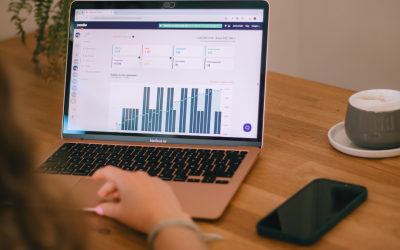Year-round employee benefits communication strategy
Employee benefits are a major investment for employers, yet employees often only think about them once a year. When communication is limited to open enrollment, important programs go unused, employees feel unsure about their options, and HR teams end up fielding the same questions repeatedly. A year-round approach helps employees understand, value, and actually use the benefits available to them.
Why benefits communication can’t stop after open enrollment
Many employees walk away from OE with only a surface-level understanding of what they selected. Without timely reminders or ongoing education, benefits quickly become out of sight, out of mind. This can lead to underutilized programs, avoidable confusion, and lower overall satisfaction with the benefits package.
As expectations evolve, organizations are moving away from a once-a-year communication model toward continuous engagement. This helps employees feel supported, informed, and confident throughout the entire year.
Why a year-round benefits communication plan matters
The missed opportunity after open enrollment
Once OE ends, employees are left to navigate benefits on their own. Important details are forgotten, documents are misplaced, and many do not discover relevant programs until they are urgently needed. Without ongoing reminders, participation drops and employees lose sight of the full value of their benefits.
Goals of a year-round communication strategy
A well-designed year-round plan can:
- Reinforce employee understanding of their benefits
- Reduce benefits-related errors, confusion, and last-minute questions
- Increase utilization of health, financial, and lifestyle programs
- Support recruitment, retention, and overall employer brand perception
Foundations of effective benefits communication
Consistency builds trust
Employees feel more supported when benefits communication is predictable. Regular touchpoints help employees know where to turn for guidance and reinforce HR as a reliable resource.
Personalization and relevance
Generic messages rarely resonate. When communications reflect an employee’s life stage, needs, or past benefits usage, the information becomes more meaningful and more likely to be acted on.
Clarity and simplicity
Benefits content works best when it is easy to digest. Bite-sized explanations, clear action steps, and plain language empower employees to understand and use their benefits confidently.
Timing and frequency
A strategic cadence ensures information lands when it is most helpful. Align communication with benefit periods, seasonal needs, and common life events so employees receive guidance at the right moment.
Designing a year-round benefits education calendar
Calendar-based approach
A quarterly communication framework helps keep messaging focused and consistent while aligning topics with seasonal priorities.
Example: Quarterly focus
Q1: Financial wellness and goal setting
Highlight HSA contribution changes, retirement planning, and budgeting tools.
Q2: Health and well-being
Promote preventive care visits, wellness programs, and fitness or mental health resources.
Q3: Family and education
Share back-to-school benefits reminders, dependent care support, and caregiving resources.
Q4: Open enrollment and year-end planning
Prepare employees for OE, review insurance coverage, and remind them about FSA deadlines and rollover rules.
Key channels for year-round communication
Digital and on-demand
Emails, intranet updates, short text alerts, and benefits technology platforms make it easy to deliver timely messages. Webinars, videos, and podcasts offer on-demand learning for employees who prefer flexible formats.
In-person and interactive
Office hours, lunch-and-learns, and benefits fairs help HR connect with employees directly. Manager toolkits empower leaders to reinforce key messages within their teams.
Cross-channel repurposing
A single message can be turned into multiple formats, such as a blog post that becomes an infographic, email snippet, or short video. This helps reinforce the message across different learning styles.
Making communication engaging and effective
Core principles
- Relevance: Connect benefits to real-life events and needs
- Clarity: Keep content easy to follow with visuals or examples where helpful
- Personalization: Segment messaging by demographic, usage patterns, or eligibility
- Timing: Send information when employees are most likely to take action
- Incentive: Encourage participation through small rewards, challenges, or recognition
- Authority: Use trusted HR or leadership voices to reinforce key messages
Measuring success and adapting the strategy
Capturing employee feedback
Quick pulse polls, surveys, or focus groups help reveal which topics resonate and where employees need more support. Aim for diverse participation to ensure all employee perspectives are represented.
Tracking utilization and engagement
Monitor benefits adoption rates and engagement with benefits technology to understand what is working and where communication may be falling short.
Continuous improvement
Use insights from analytics and feedback to refine topics, communication formats, and timing. Keeping the strategy flexible ensures it stays aligned with evolving employee needs and organizational goals.
Conclusion
Year-round communication transforms benefits from a once-a-year requirement into an ongoing value driver. The most successful employers treat benefits education as a continuous conversation that helps employees understand their options, make informed decisions, and get the most out of their benefits all year long. Planning now for a year-round communication calendar ensures employees feel supported every step of the way and helps organizations maximize the value of their benefits investment.






